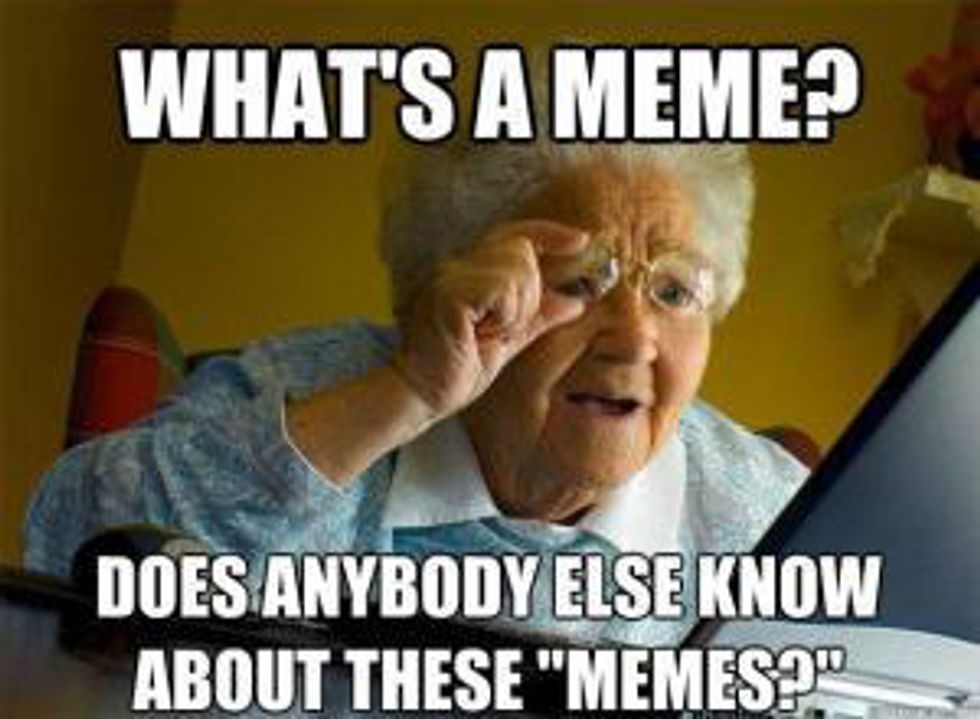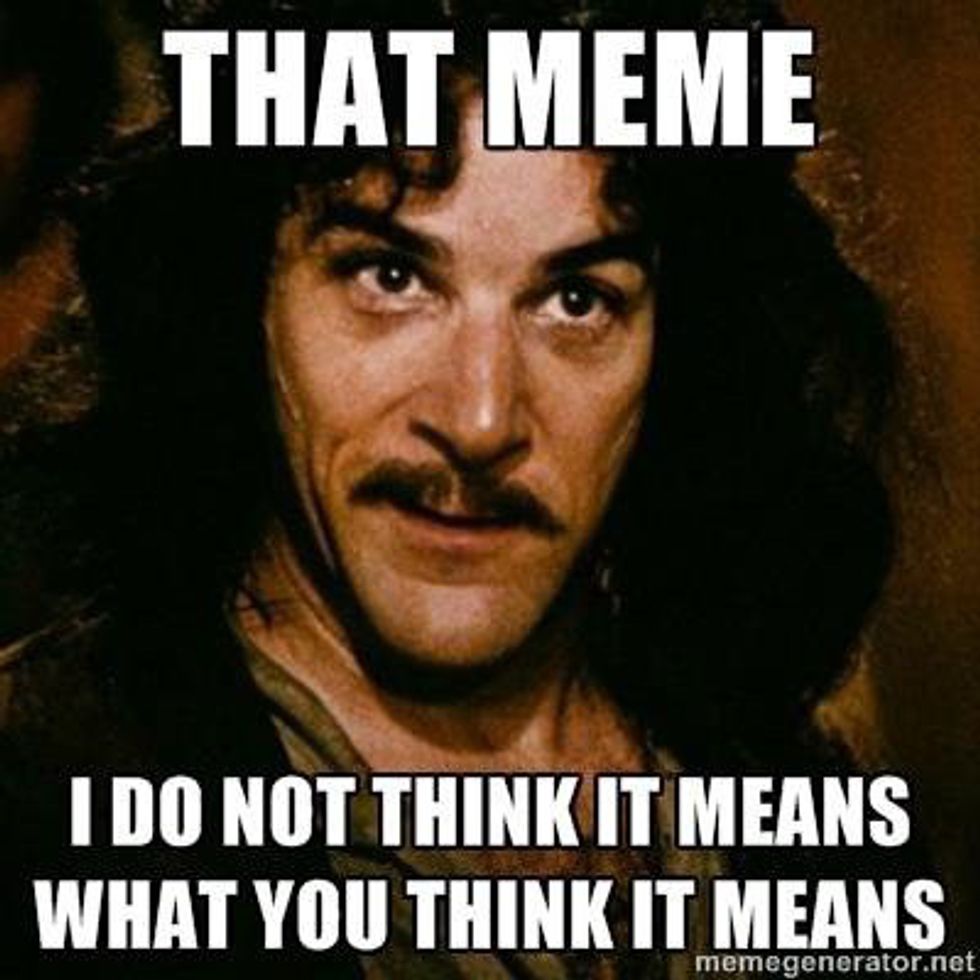Among today's youth, memes are so pervasive all around the Internet that they seem as natural as just about anything else. But if we're asked, say by our grandmother, to define a meme, suddenly words fail us. What is a meme? To many, it's as simple as a joke that's widely circulated on the Internet, usually consisting of a silly picture and varying captions. But upon doing some internet archaeology, it turns out the word meme, actually has a longer history than many realize.
The word meme is actually a real sociological term coined in the 1970's by evolutionary biologist Richard Dawkinsin his book, The Selfish Geneand gave rise to a whole new theory of cultural evolution known as memetics. The term stems from the greek word mimema, to imitate, and the English word gene, as in a genetic sequence. Hence the original definition of the term: an element of a culture or system of behavior that may be considered to be passed from one individual to another by nongenetic means, especially imitation. Dawkin's basic concept was that human culture undergoes an evolutionary process, much like human biology. A meme is therefore any cultural entity that can be replicated such as fashion trends, melodies, or even just learned skills.
So how did we get to the lovely internet memes we know today? When you take in to consideration the original definition of a meme, the Internet meme phenomena actually becomes a whole lot more interesting. If memes are, as Dawkins claims, the smallest transmittable units of culture, than internet memes are simply units of Internet culture. This may seem like a completely obvious conclusion (that's probably because it is) but I think it holds a lot of weight to it. The Internet has, in some ways, evolved to the point of being a culture of its own. It has its own customs, values, and behaviors that wouldn't be intelligible anywhere else. Some people even become different people on the Internet. Beyond literally taking on an alias, studies have found that people simply behave differently online than they may otherwise in real life. This is known as the Online disinhibition effectand occurs when a person reduces or fully abandon's their day-to-day inhibitions while on the Internet. Psychologists mainly chock this up to anonymity, dissociative imagination, and the minimization of authority. For me, all of this begs the question, when we look at our Facebook feed, twitter, reddit, Instagram, or any other iInternet based social media, are we really seeing the world as we know it, or a new one altogether?




















